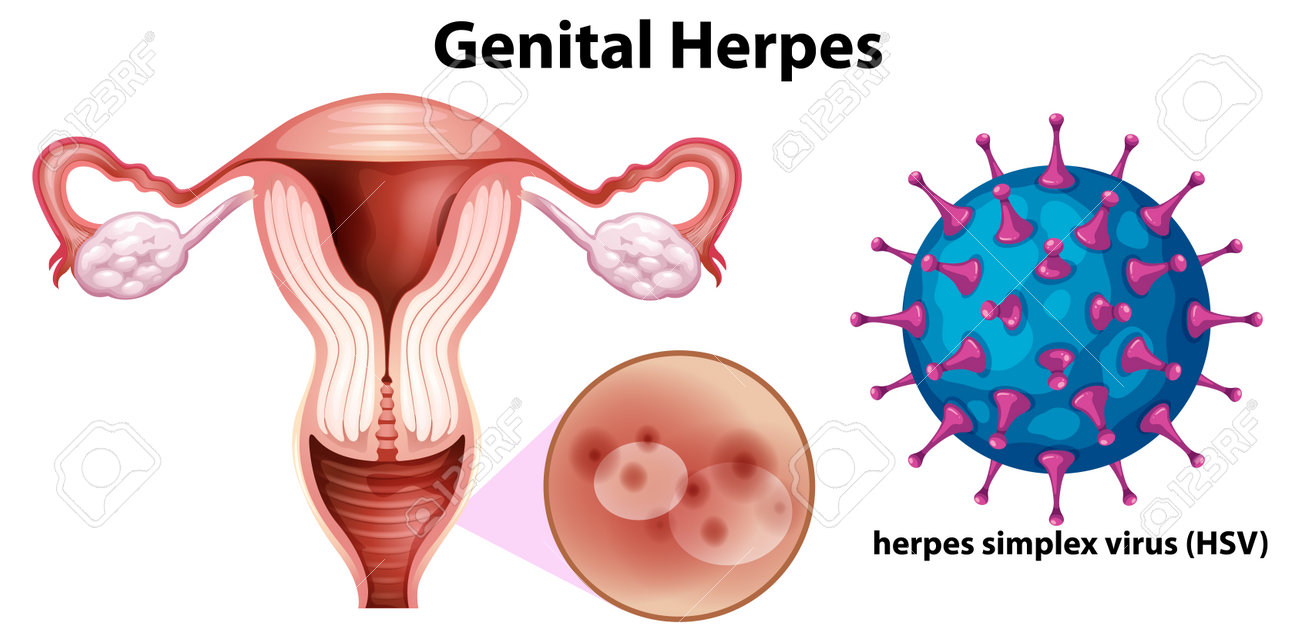Genital Herpes and IVF: What Patients Need to Know
For couples preparing for in vitro fertilization (IVF), health screenings play a crucial role in ensuring both the safety of the mother and the success of treatment. Among the conditions that clinics check for is genital herpes, a common sexually transmitted infection (STI). While herpes is often manageable, understanding its causes, risk factors, and potential complications is vital, especially for patients considering fertility treatments.
What is Genital Herpes?
Genital herpes is a sexually transmitted infection caused by the herpes simplex virus (HSV). There are two main types of HSV:
-
HSV-1, typically associated with oral herpes (cold sores), but it can also cause genital infections.
-
HSV-2, the primary cause of genital herpes.
The infection is characterized by painful blisters or sores around the genital or anal area. Once contracted, the virus remains in the body for life, with symptoms recurring periodically.
Causes and Transmission
The primary cause of genital herpes is direct skin-to-skin contact with an infected person, most commonly during sexual activity. It spreads even when no visible sores are present, because the virus can shed from the skin without symptoms. Transmission risks include:
-
Vaginal, anal, or oral sex with an infected partner
-
Sharing sex toys without proper cleaning
-
Contact with herpes lesions during active outbreaks
Herpes cannot spread through casual contact like hugging, using the same toilet, or sharing utensils.
Risk Factors
Several factors increase the likelihood of contracting genital herpes:
-
Multiple sexual partners without consistent condom use
-
Weakened immune system, such as in patients with HIV or those undergoing immunosuppressive therapy
-
Younger age, as many people contract HSV shortly after becoming sexually active
-
Female gender, since transmission from men to women is biologically more efficient
For IVF patients, these risk factors are carefully assessed during pre-treatment screenings.
Symptoms and Severe Cases
Most people with genital herpes may not even realize they have it. However, when symptoms occur, they typically include:
-
Painful blisters or ulcers around the genital area
-
Burning or itching sensations
-
Fever, body aches, and swollen lymph nodes during the first outbreak
In severe cases, herpes can cause:
-
Widespread skin infections in immunocompromised individuals
-
Neurological complications such as meningitis or encephalitis
-
Increased risk of HIV transmission, since open sores provide an entry point for the virus
-
Complications during pregnancy, including the risk of neonatal herpes, which can be life-threatening for newborns
Treatment and Management
Currently, there is no cure for herpes, but effective treatments are available to control outbreaks and reduce transmission risk.
1. Antiviral Medications
Drugs like acyclovir, valacyclovir, and famciclovir are commonly prescribed. They help shorten outbreaks, ease symptoms, and reduce the likelihood of transmitting the virus to a partner.
2. Suppressive Therapy
For patients with frequent recurrences, daily antiviral medication can suppress outbreaks and lower the risk of passing HSV to others.
3. Lifestyle Adjustments
Managing stress, avoiding known triggers (like illness or fatigue), and practicing safe sex can reduce outbreak frequency.
4. Pregnancy Considerations
Pregnant women with genital herpes require close monitoring. If an outbreak occurs near delivery, a cesarean section (C-section) may be recommended to protect the baby from neonatal herpes.
WHO’s Perspective on Genital Herpes
The World Health Organization (WHO) recognizes herpes as one of the most common global STIs, affecting hundreds of millions of people worldwide. According to WHO:
-
HSV-2 affects over 490 million people globally.
-
HSV-1, while more commonly linked to oral herpes, causes 140 million cases of genital herpes.
-
There is no vaccine available yet, but research is ongoing.
-
WHO emphasizes the importance of prevention, education, and safe sexual practices to reduce transmission.
From a public health standpoint, WHO highlights that herpes is not just a medical issue but also a social and psychological one, often associated with stigma, which can impact relationships and emotional wellbeing.
Genital Herpes and IVF
1. Screening Before IVF
Most fertility clinics, including those in popular destinations like North Cyprus, require STI screening before starting IVF. This ensures both patient safety and the protection of embryos and medical staff.
2. Impact on IVF Success
Herpes itself does not directly reduce fertility or IVF success rates. However, active infections during treatment may cause discomfort, stress, or delay in procedures such as egg retrieval or embryo transfer.
3. Pregnancy Risks
For women undergoing IVF who carry herpes, careful planning is essential. Doctors may prescribe antiviral suppression therapy during late pregnancy to reduce the risk of neonatal herpes. IVF allows clinics to better time and manage pregnancy, ensuring outbreaks are under control.
4. Male Patients with Herpes
Men with herpes can still provide sperm for IVF. In some cases, sperm washing techniques are used in the laboratory to minimize the risk of transmitting the virus.
Conclusion
Genital herpes is a common viral infection, but with modern medical care, it does not prevent individuals or couples from successfully undergoing IVF and starting a family. While the condition can cause complications in severe cases, effective treatments and careful management strategies exist to reduce risks.
The WHO continues to emphasize prevention, awareness, and treatment access, aiming to reduce the global burden of herpes. For IVF patients, transparent communication with fertility specialists and adherence to medical protocols ensures that herpes, while a lifelong condition, does not stand in the way of achieving the dream of parenthood.
For any of your fertility problems, please do not hesitate to contact us. At Fertility Solutions we pride ourselves with the excellent tailored personal care we provide to our patients for their specific needs. A team member will contact you as soon as we get your message, and construct a personal treatment plan for your fertility problems in the country of Cyprus. You can also contact our clinics directly through the links below.
Cyprus Crown IVF Contact: https://en.cypruscrownivf.com/contact
Cyprus American IVF Contact: https://www.cyprusamericanivf.com/contact-us/
Dr. Halil Ibrahim Tekin (Dr. HIT) Youtube: https://www.youtube.com/@dr.halilibrahimtekin1715
Cyprus American IVF Youtube: https://www.youtube.com/@AmerikanTupBebekMerkezi




